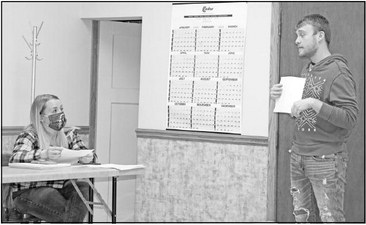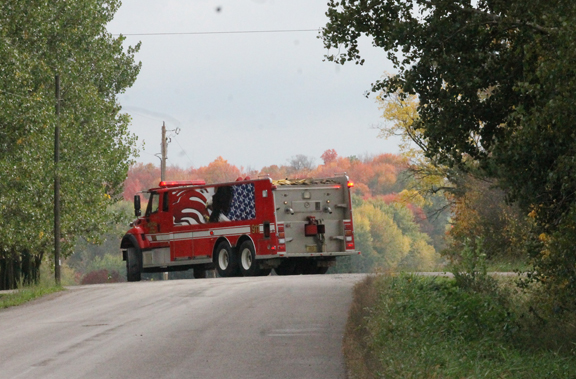Cornell eggcited to welcome chicken keeping ordinance


There are chickens throughout Cornell, but only in areas specified as agriculturally zoned. That may change, after the Cornell Planning Commission heard a proposal from David Shipley and Jacob Anstice Oct. 13, about keeping chickens at their property on Bates Street.
However, it wasn’t just their yard, but also anyone else who wanted them in the city, hence a possible ordinance needed to be discussed.
“It’s kind of the rural areas of the city where it’s presently allowed,” said city administrator Dave DeJongh.
Shipley says he and Anstice do not raise chickens for meat, only for eggs and because they love the birds.
“My chickens were my babies,” said Shipley. “They make excellent pets.”
He also said raising chickens is a great way to show kids how to survive and enjoy the outdoors.
“They’re great for children, it teaches awesome responsibility,” said Shipley.
An obvious benefit is the from-yard-to-table eggs.
“Nothing compares with the taste,” said Shipley. “Chickens can lay eggs almost every single day, if not more than once a day…so that’s a really good thing.”
Shipley would not recommend allowing a rooster, as they can be mean, territorial and noisy. Hens can also still lay eggs without a rooster.
He also mentioned that people can sell eggs if it’s allowed in the ordinance. Shipley says he doesn’t want to take away business from the local store, but would like to see it become a teaching tool for kids, so they can learn where food comes from.
Also, if someone has fertilized eggs, children can watch the chicks hatch.
“It’s a very neat experience,” said Shipley.
DeJongh asked what the lifespan of a chicken should be. Shipley said if people are using the bird for meat, they will likely only live eight months, but when raised to produce eggs, the fowl could live 12-18 years if well cared for.
“There is a certain time limit where they lay eggs (up to four years),” said Shipley.
Shipley said unwashed farm eggs will last up to three months stored in a refrigerator, or three weeks sitting on the counter.
“Store bought eggs...the chickens aren’t as well taken care of,” he said. “They’re (eggs) washed in a chemical.”
By using the chemicals, it creates divets in the shell, allowing for the chemical to infiltrate the inside of the egg.
An added bonus of keeping chickens, is they provide natural fertilizer, clean up yard clippings and cut down on insects around the house. Shipley agrees that manure doesn’t smell the best, but depending on bedding and cleaning practices, it is manageable.
A lot of ordinances in other cities call for applications and permits to keep chickens, which brings revenue to a city. Shipley said people should have a coop, with a fence around it and netting over the top so the birds can’t escape, or people can clip their wing feathers.
He mentioned that he and Anstice never had an issue with the birds they had trying to escape, with or without the netting.
“Frankly, ours were always too fat to do it,” said Shipley.
An ordinance could also require an inspection of the yard to make sure it a suitable environment.
“Chickens can be a little expensive, too, depending on what you want for them (housing),” said Shipley.
There were several guests present at the meeting, but each of them were in favor of an ordinance allowing chickens. No one expressed concerns over allowing the ordinance.
“I was probably on the fence, but you come very well prepared and you changed my mind,” said mayor Mark Larson.
The Planning Commission agreed to look over the materials Shipley provided and to determine at a separate meeting, how the ordinance will read. Shipley said it is not difficult to care for chickens, all you really need to do is feed and water them, and clean up their cage.
“Honestly, as long as you have just a shred of responsibility, you will be able to keep them,” said Shipley.



